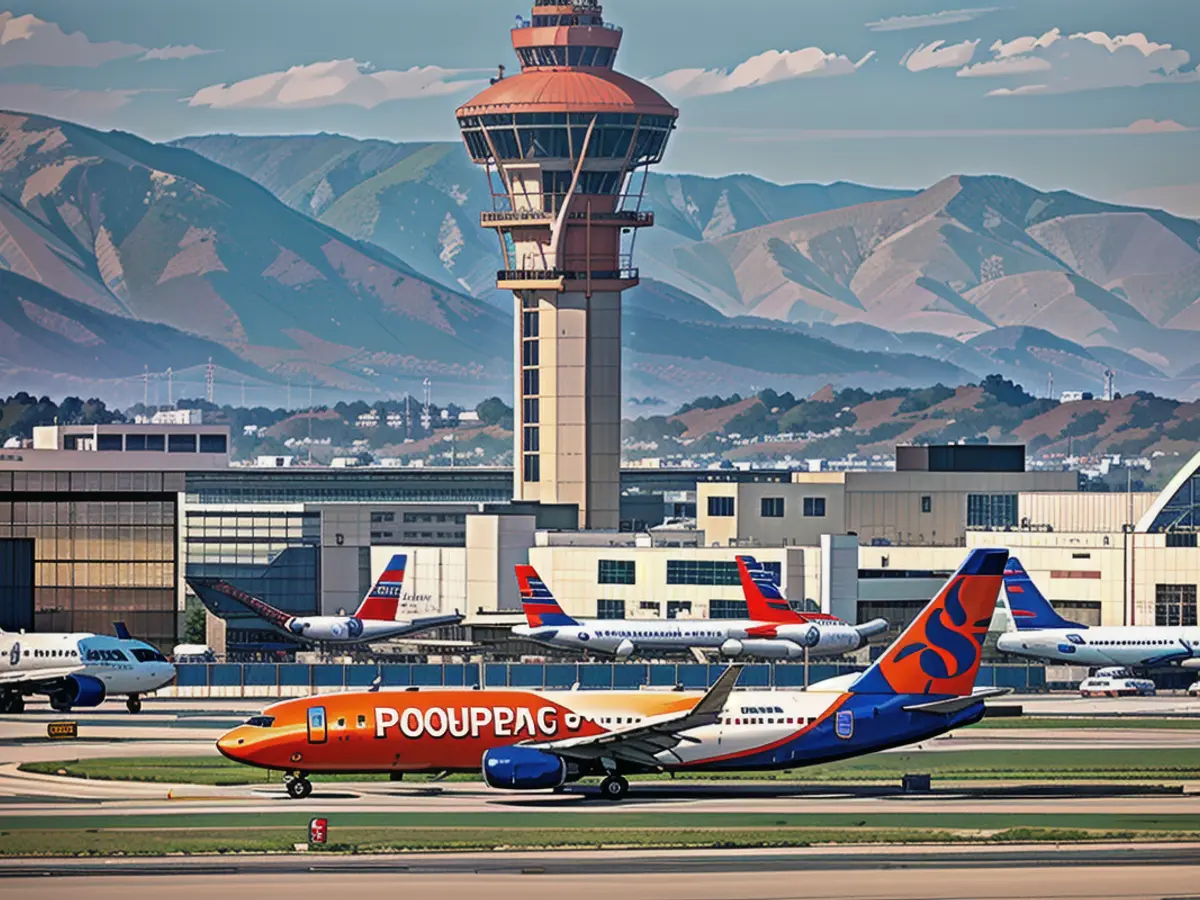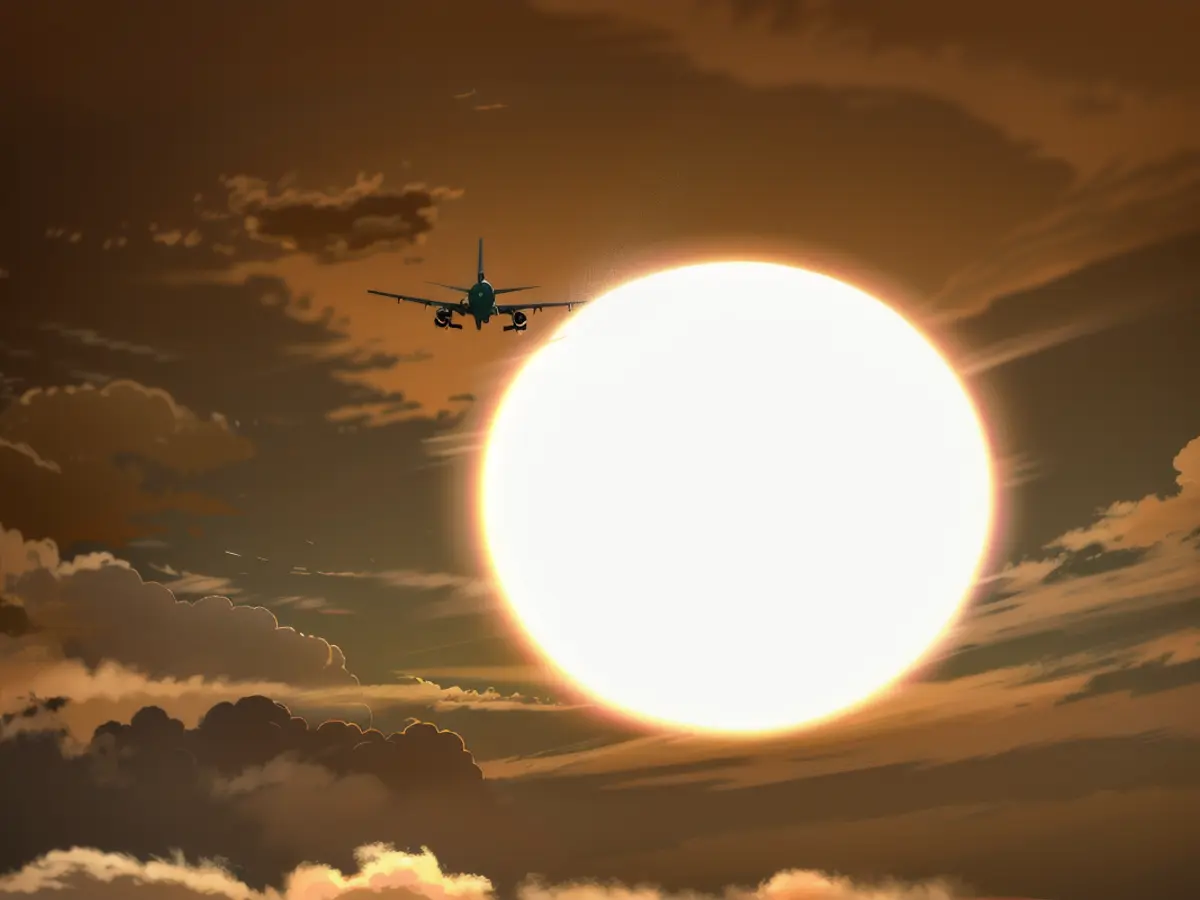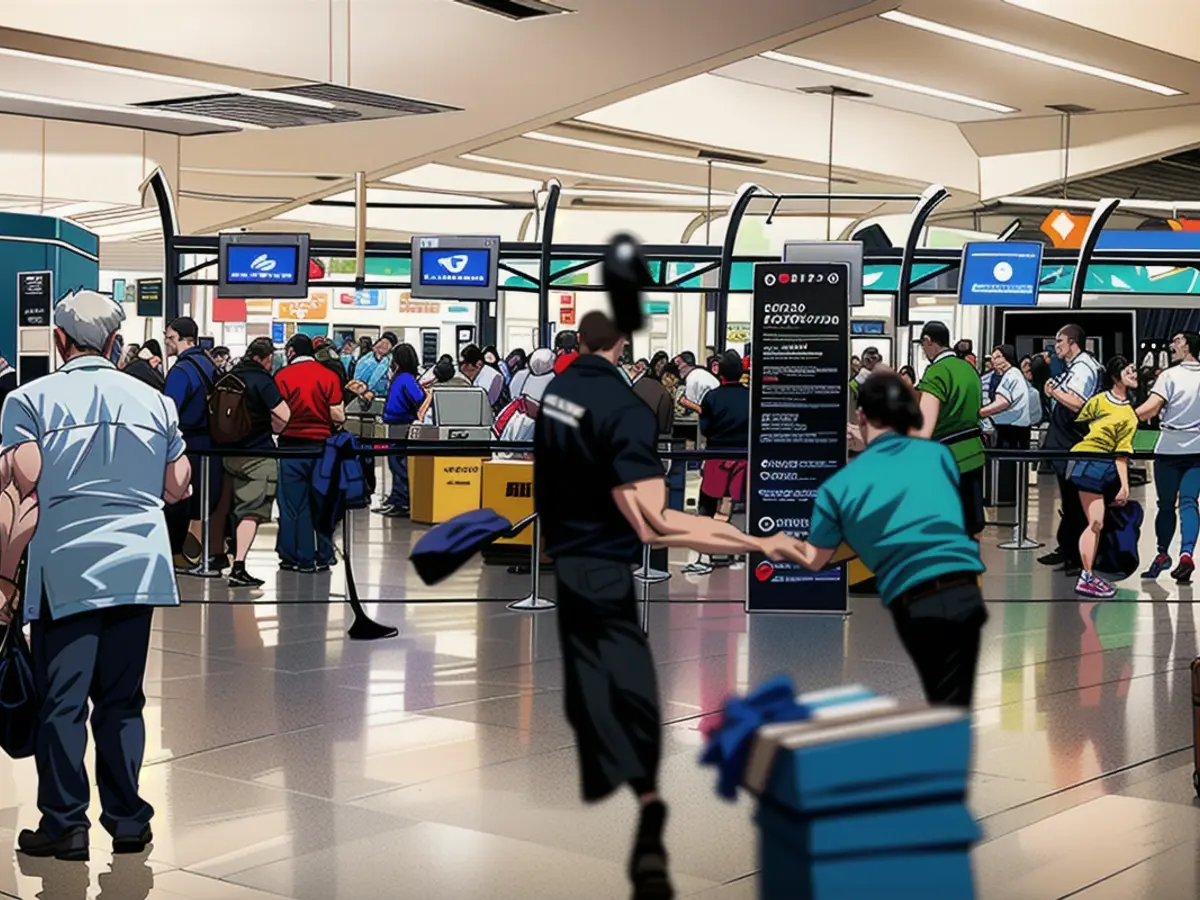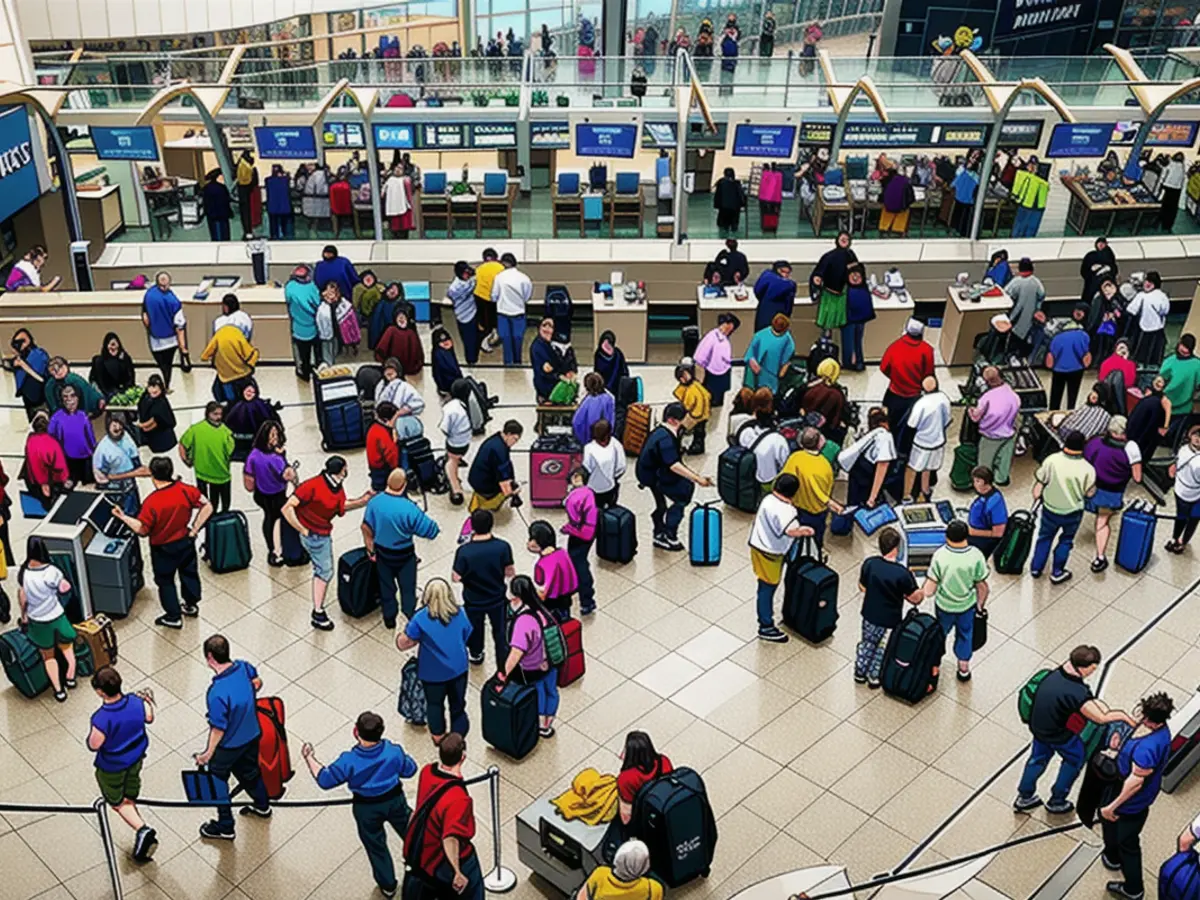Prepare for challenges ahead: Air travelers face difficulties during the bustling summer season.
During the Memorial Day weekend, the summer travel season is expected to kick off with a bang. The Federal Aviation Administration predicts this holiday will be its busiest in 14 years. The Transportation Security Administration anticipates screening 18 million passengers and crew members between Thursday and Wednesday, representing a 6% increase from last year. TSA is confident in tackling its busiest summer ever.
Notably, American Airlines and United Airlines forecast an approximately 10% boost in passengers during the holiday weekend compared to last year. United anticipates its largest Memorial Day and summer travel season in the company's 98-year history, informed Andrew Nocella, United's executive vice president and chief commercial officer.
However, passengers should not expect significant improvements in navigating their way through large crowds of fellow travelers after Memorial Day.
From June 1 to August 31, US airlines are set to transport 271 million passengers across the globe. This corresponds to a 6.3% increase from the previous summer, as per Airlines for America, a trade organization representing US airlines. To address the rising demand, they anticipate operating over 26,000 scheduled flights daily - a 1,400-increase from summer 2023.
Although the airlines have increased the number of staff and TSA is confident about handling the summer rush, an air traffic controller shortage, severe weather, and crowded airports could potentially cause flight disruptions and inconveniences.

Nationwide, there is an estimated shortage of around 3,000 air traffic controllers. This staffing shortage is a cause of concern for airlines, controllers, and monitoring agencies.
Airports in the New York City metro area and Florida have a slightly higher possibility of being affected by air traffic control issues because of the intricacies in the distribution of air traffic control maps. Therefore, travelers are advised to prioritize early morning, nonstop flights within those markets to minimize potential issues.
"I took a flight to New York a couple days ago, and my flight got delayed by four hours. It was quite an inconvenience, but it just meant I arrived in New York four hours later," said Scott Keyes, the founder of the travel site Going. "If I had a connecting flight in Chicago, and my flight was delayed by four hours, I would have potentially missed my connection with much more complications."
Hot weather is another challenge, potentially affecting the airline's operations. Researchers at Embry‐Riddle Aeronautical University have found that hot air, being thinner than standard air, reduces the lift required for planes to take off. However, the significant impact is on engine thrust. The aircraft's engines produce less thrust during takeoff and ascent when facing hot temperatures, consequently necessitating weight reduction. Airlines usually remove baggage or passengers to reduce weight when the weather reaches extreme heat levels. Delays and cancellations can also occur. If you plan to fly in areas with hot weather, scheduling early morning and late evening flights can help mitigate potential problems.

As the world experiences the impacts of climate change, more severe turbulence is anticipated during flights, including rougher rides and increased disruptions. Jayant Sagade, a professor of atmospheric science, notes, "The seat belt sign might be turned on more frequently."
Furthermore, experts have forecast a "hyperactive Atlantic hurricane season" with eight to 13 hurricanes, including four to seven potentially reaching Category 3 (a storm with sustained winds of 111 to 129 mph). The hurricane season typically peaks between late August and early October.
Altogether, prioritizing early morning and late evening flights in the New York City metro area and Florida, preparing for severe heat and potential turbulence, and remaining vigilant about potential hurricane activity are crucial strategies to ensure a smoother summer flying experience.
In an interview, Keyes mentioned that the arrival of new planes and increased flights will result in a greater capacity this year, with more seating options making for more spacious flying experiences, even during busy travel times.

However, these improvements won't come without complications. With busy airports, Keyes suggests that passengers get the TSA PreCheck and/or Fast Track services to skip potential security line delays. Additionally, he recommends finding a peaceful spot away from the gate to pass the time before boarding, using the airline's mobile app to receive notifications prior to entering the plane.
For budget-conscious travelers, the summer of 2024 could be more cost-effective than the previous year. According to travel site Kayak, US domestic fares are projected to decrease by 13% compared to 2023. Travel to Mexico is expected to be even cheaper, with an average 16% decrease in fares. Flying to Australia might also be more affordable, as average fares drop by 14%, despite their cost still being around $1,509, according to the site.
More good news for those who steered clear of Europe due to the crowds and high prices last year - Keyes expects increased supply and less demand this time around, possibly leading to lower fares. This phenomenon is even noticeable in some of the most popular European destinations: a round-trip flight to Paris could cost as little as $570, Iceland for $475, and Dublin for $457.
CNN's Senior Climate and Weather Editor Angela Fritz contributed to this report.

Read also:
- Fear of escalation in the Middle East: US Secretary of State Blinken travels to the region again
- Government circles: US Secretary of State Blinken to travel to Middle East again
- Bridging days 2024: How you can double your vacation this year
- Germany has wanderlust: how tour operators and airlines are looking ahead to the next travel year
Given the context, here are two sentences that contain the words 'travel' and 'Aviation':
During the summer travel season, the Federal Aviation Administration predicts a significant increase in air traffic, with up to 26,000 scheduled flights daily.
To mitigate potential flight disruptions during the busy summer season, passengers are advised to consider early morning or late evening flights, especially in areas with higher air traffic control concerns.
Source: edition.cnn.com








